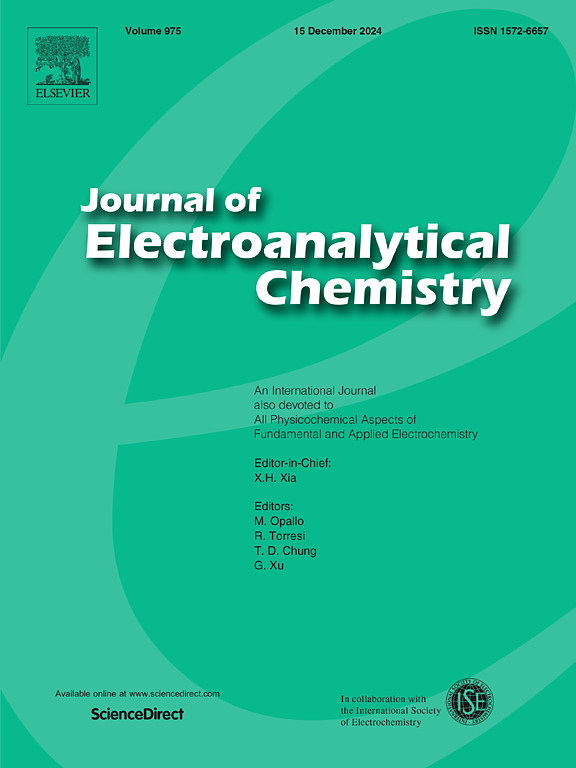Helical carbon nanofibers-supported MnSiO3 for high-performance lithium-ion battery anode materials
IF 4.1
3区 化学
Q1 CHEMISTRY, ANALYTICAL
引用次数: 0
Abstract
Metal silicates are regarded as promising candidates for lithium-ion batteries due to their high capacity, ease of synthesis, and environmental friendliness. Unfortunately, the challenge of enhancing the electrical conductivity of metal silicates represents a significant obstacle in this field. In this study, a simple and controllable two-step method was used to design and prepare the novel helical carbon nanofibers@manganese silicate (HCNFs@MnSiO3) anode composite, in which the size of MnSiO3 nanoparticles are about 20 nm. After 200 cycles at 200 mA g−1, the HCNFs@MnSiO3 anode exhibits an excellent reversible specific capacity of 878.1 mA h/g, which is 158 % higher than that of the MnSiO3 anode. The synergistic interaction of HCNFs and MnSiO3 is primarily responsible for the enhanced electrochemical performance of HCNFs@MnSiO3. A robust supportive network space is offered by the three-dimensional helical structure of HCNFs to allow for the volume expansion of MnSiO3 during charging and discharging. Furthermore, MnSiO3′s low electrical conductivity is enhanced by HCNFs’ high electrical conductivity. The development of high-performance lithium-ion batteries using metal silicate-based anode materials is aided by the useful reference provided by this study.

求助全文
约1分钟内获得全文
求助全文
来源期刊
CiteScore
7.80
自引率
6.70%
发文量
912
审稿时长
2.4 months
期刊介绍:
The Journal of Electroanalytical Chemistry is the foremost international journal devoted to the interdisciplinary subject of electrochemistry in all its aspects, theoretical as well as applied.
Electrochemistry is a wide ranging area that is in a state of continuous evolution. Rather than compiling a long list of topics covered by the Journal, the editors would like to draw particular attention to the key issues of novelty, topicality and quality. Papers should present new and interesting electrochemical science in a way that is accessible to the reader. The presentation and discussion should be at a level that is consistent with the international status of the Journal. Reports describing the application of well-established techniques to problems that are essentially technical will not be accepted. Similarly, papers that report observations but fail to provide adequate interpretation will be rejected by the Editors. Papers dealing with technical electrochemistry should be submitted to other specialist journals unless the authors can show that their work provides substantially new insights into electrochemical processes.

 求助内容:
求助内容: 应助结果提醒方式:
应助结果提醒方式:


